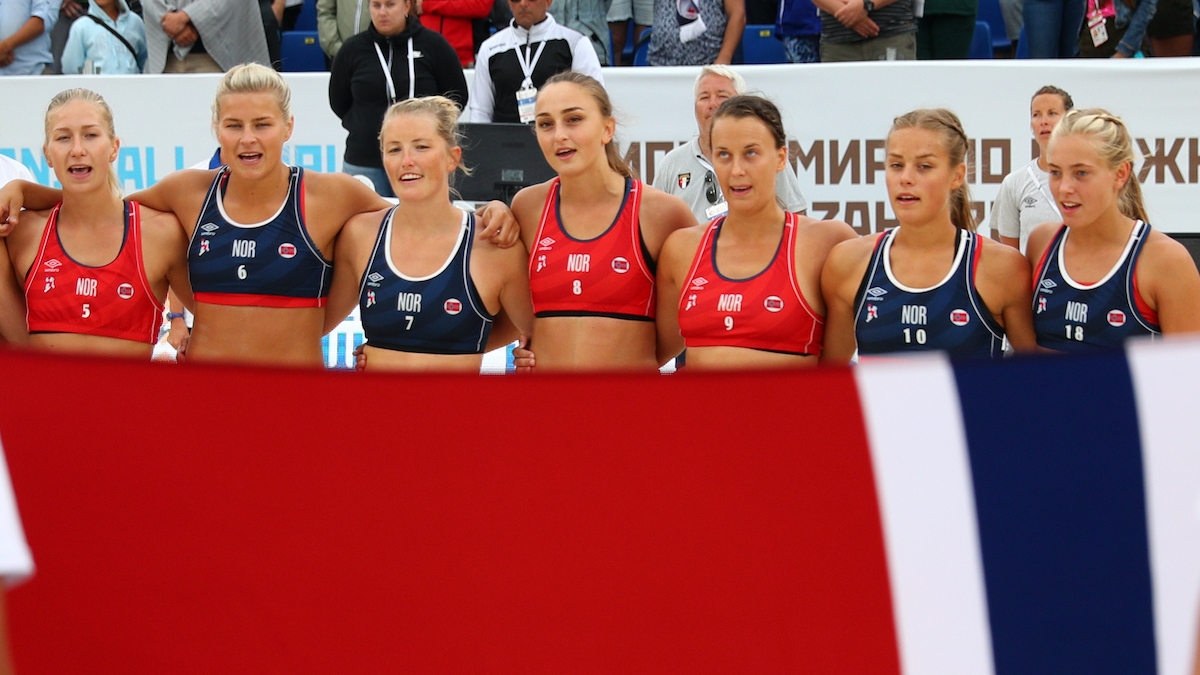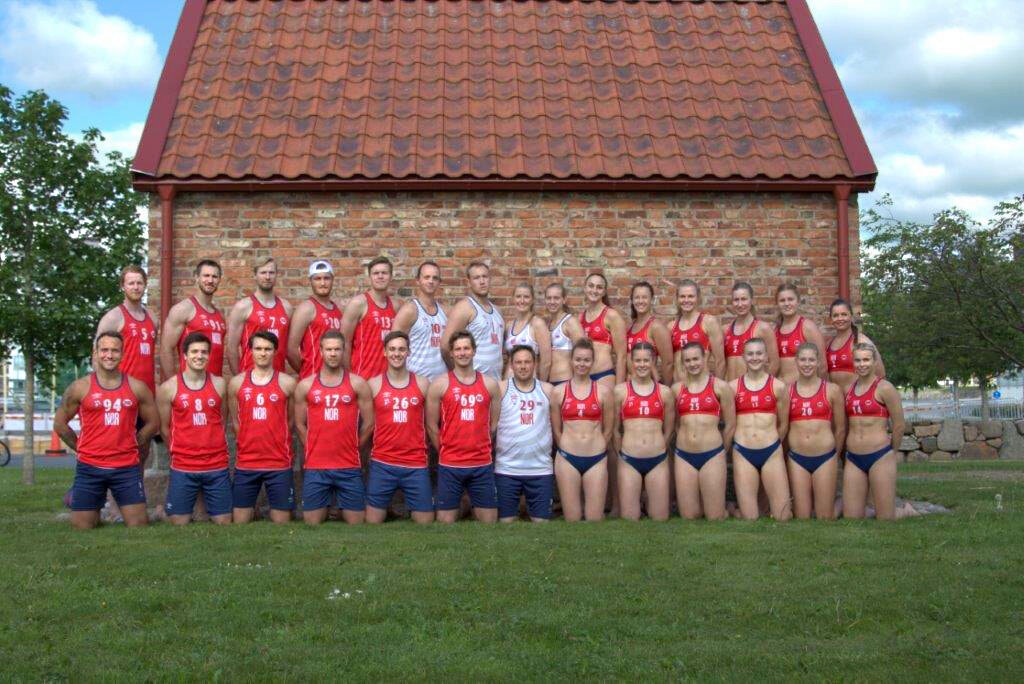
Norway’s Women's Beach Handball Team Challenges Sexism
July 23, 2021
The Norway women's national beach handball team is fighting back against double standards arising from the uniforms they are required to wear during international competition. While men can wear shorts as long as they are 10 centimeters (four inches) above their knees and “not too baggy,” the International Handball Federation (IHF) requires that women wear bikini bottoms “with a close fit and cut on an upward angle toward the top of the leg.” The sides of the bikini bottoms must be no more than 10 centimeters.
Team member Martine Welfler called out the sexism, stating: “I don’t see why we can’t play in shorts. With so much body shaming and stuff like that these days, you should be able to wear a little bit more when you play.” She also told the New York Times that some Norwegian players even choose not to compete internationally because of the skimpy uniforms and scrutiny (shorts are allowed in domestic tournaments).
Norwegian Handball Federation President Kåre Geir Lio stated that it has been petitioning for a uniform change since 2006, but were met with threats of fines and disqualifications by the European Handball Federation (EHF).

At the recent European Beach Handball Championships, the team decided to challenge to the rule with the entire team donning thigh-length elastic shorts. The EHF immediately issued fines of 150 euros to each of the 10-member team saying that their shorts were "improper clothing," according to IHF regulations. When asked, an IHF spokesperson said she did not know the reason for the rule.
The NHF paid the fines and praised the players for trying to change attitudes. It has vowed to continue to fight against the uniform regulations and Norway will submit a motion to change the rules in an extraordinary congress of the IHF in November.
Regulations and recommendations on what women and girls can and can't wear in sport is a long running issue, negatively impacting equality and participation in sport - and often resulting in sexualization. Similar uniform guidelines exist in sports such as beach volleyball and gymnastics, and to some extent in track and field.
Back in April this year, the German gymnastics team sparked a conversation on female sporting attire when they opted for full-body suits. A few years ago, tennis's Serena Williams and Alizé Cornet faced code violations for seemingly sexist sports dress codes. And, with the ban on female athletes being allowed to wear hijabs in competition in some countries (and in other areas of life), some athletes are even put in the position of having to choose between their religious beliefs and their ability to access the benefits of sport.
Athletes are continuing to speak out, but in an insightful opinion expressed by Tayo Bero for SportsNet: "the answer becomes clear when you consider that women’s sports have long existed as a not-yet-fully-accepted subset of what has historically been seen as a man’s field. And when it comes to appearance, female athletes are either masculinized and ridiculed, or propped up as eye candy for male viewers. Take the 2004 statement from former FIFA president Sepp Blatter, who suggested that women in soccer wear tighter shorts to “create a more female aesthetic" and increase the popularity of the game."
"And with all sports being filtered through the male gaze in this way, it’s no surprise that sexist and retrograde rules continue to pervade them, compromising women’s ability to compete in a healthy and fair environment."